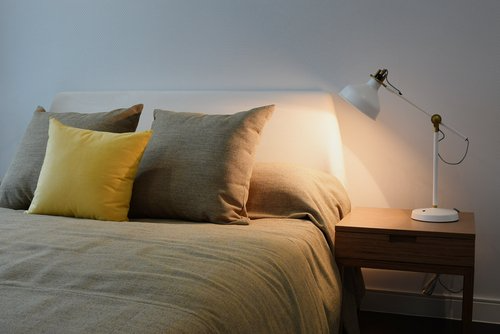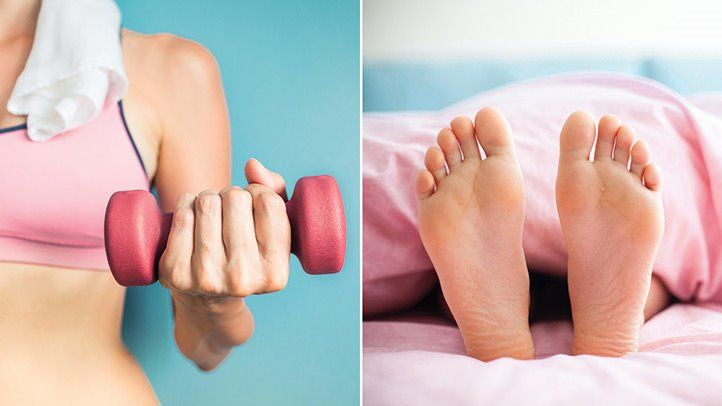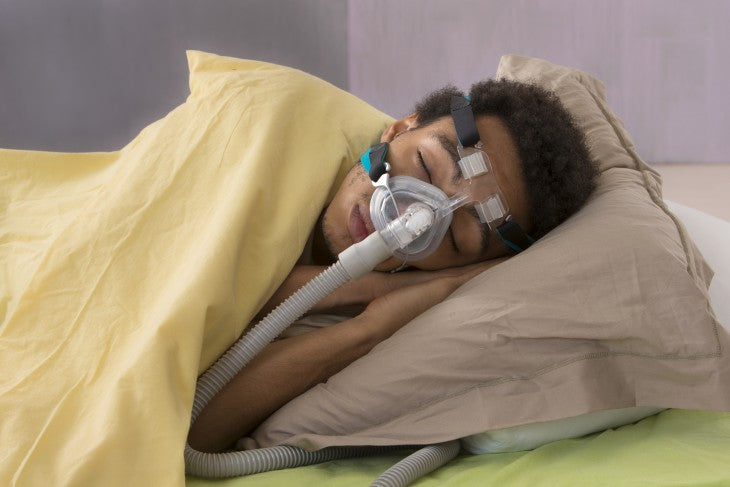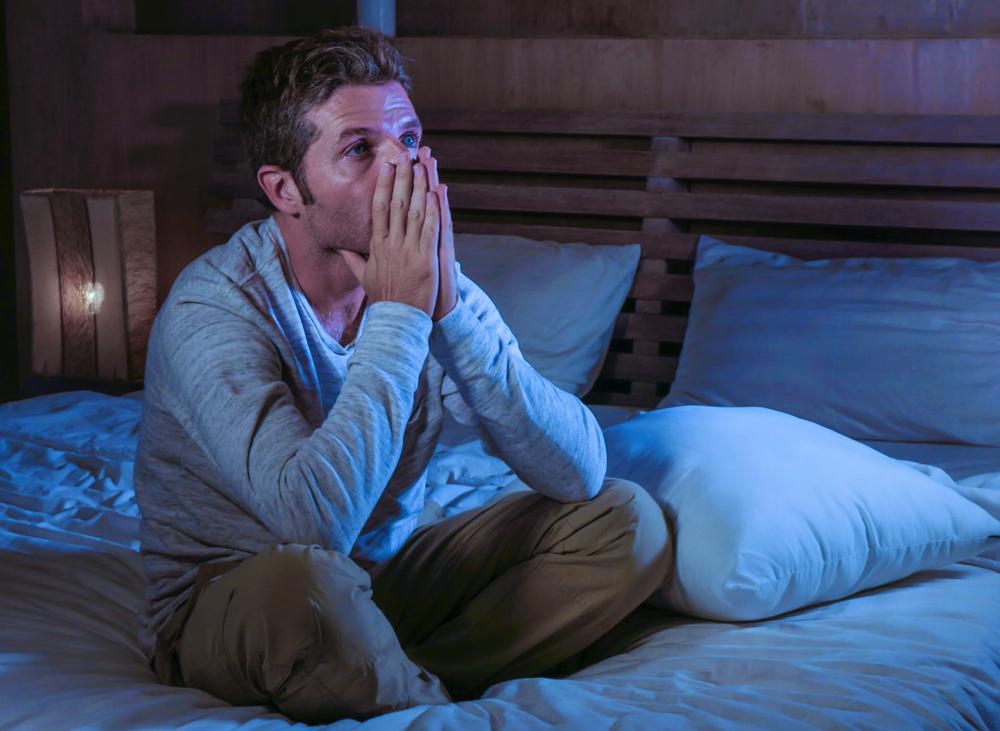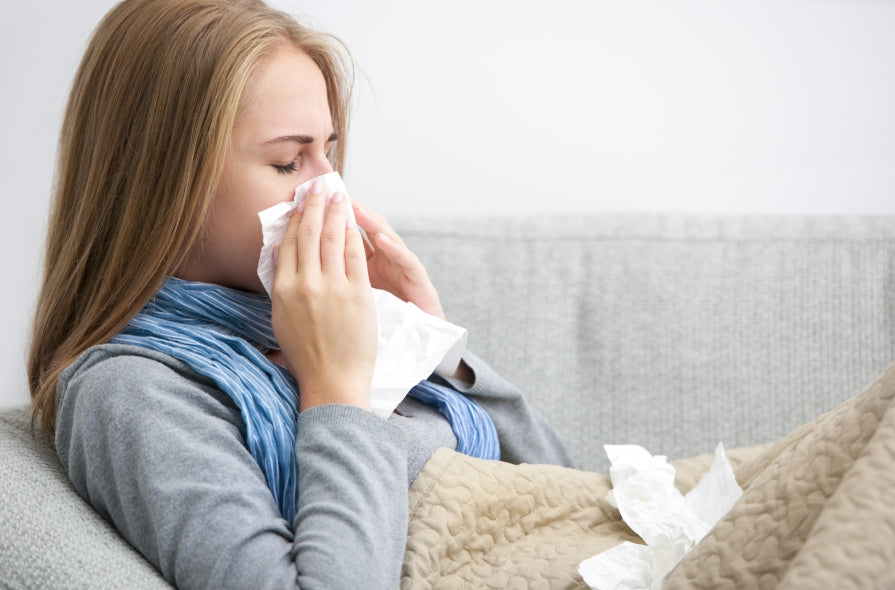News
Can Exercise Improve your Sleep Apnea?
wp:paragraph Did you know that exercise has numerous benefits for your overall sleep cycle? This is especially true if you suffer from sleep apnea. /wp:paragraph wp:paragraph Not only can proper exercise help you to fall asleep faster, but it can improve your quality of sleep overall. If you suffer from sleep apnea, many studies have made numerous connections between weight loss (which includes diet and exercise) and an improvement in sleep apnea symptoms. Most severe cases of sleep apnea will still require further medical treatment such as a CPAP machine and exercise is not a cure for sleep apnea, however, a healthy change in lifestyle can certainly lessen the severity of your symptoms. /wp:paragraph wp:paragraph If you find you are sitting more and more these days and want to pick up some healthy exercise habits, here are a few tips to get started: /wp:paragraph wp:list Start small and low impact: all you need to do is get moving! Start with a short walk or maybe do a short exercise routine online, then you can build up the momentum afterwards to do something that challenges you a little more. Stick to something you enjoy: it’s easy to fall off track if you are doing an exercise routine you are not enjoying. Maybe the treadmill is not your thing but if you enjoy another sport or activity that gets you moving then stick to that. Ask for support: having support from a friend, family member or partner can be extremely beneficial in your journey and can motivate you to stick with it. Avoid high intensity activity within 1-2 hours to bedtime: all those endorphins that get released during exercise are great, but not at the end of the day when you are trying to slow down and get into a sleeping routine. Don’t skip out on healthy eating: diet, sleep and exercise are all important parts to maintaining a healthy lifestyle. Stick to your CPAP treatment: while exercise can improve your sleep apnea symptoms, it is not a cure, and not using your CPAP machine can only make your symptoms worse. /wp:list
about Can Exercise Improve your Sleep Apnea?Four Myths about Sleep Apnea
wp:paragraph Sleep apnea, as you may know, is a condition that causes a pause in your breathing for approximately 10-30 seconds while you sleep and can happen up to several times in a night. There are many myths and misinformation around sleep apnea given how complex the condition can be. Here are four myths you may or may not have heard about sleep apnea. /wp:paragraph wp:paragraph 1. Only older adults get sleep apnea. /wp:paragraph wp:paragraph This is not true. While most cases of sleep apnea occur in middle-aged adults, you can develop sleep apnea at any age. It can even occur in children! That said, the risk of developing sleep apnea does increase as you get older, however the condition is not at all based solely on age. /wp:paragraph wp:paragraph 2. Sleep apnea is the same thing as snoring. /wp:paragraph wp:paragraph Not necessarily. Snoring is very common in adults, however it is actually different from sleep apnea. Snoring is certainly a common symptom that leads to a sleep apnea diagnosis, however you can still snore at night and not have sleep apnea. /wp:paragraph wp:paragraph 3. Only people who are overweight can develop sleep apnea /wp:paragraph wp:paragraph While the risk of developing sleep apnea does increase if you are overweight, this is not necessarily true. Loosing weight and adapting a healthier lifestyle can certainly lessen the severity of your sleep apnea symptoms, but this is not a cure. It is important to speak with your doctor if you think you have sleep apnea and they can conduct the proper testing and discuss treatment options to help you sleep better. /wp:paragraph wp:paragraph 4. Sleep apnea will go away on it’s own /wp:paragraph wp:paragraph False! Sleep apnea is a serious condition that needs medical attention. If left untreated, this can cause a number of health issues including stroke, diabetes, heart disease and mental illnesses such as depression. Depending on the severity of your sleep apnea, your doctor may recommend some lifestyle changes if you have a mild case. More severe cases of sleep apnea may require you to wear a CPAP mask at night in order to treat it (more information about CPAP masks and accessories can be found at papsmart.com). /wp:paragraph
about Four Myths about Sleep ApneaIs Remote Working Affecting Your Sleep?
wp:paragraph Once the Covid-19 pandemic hit back in early 2020, many office employees found themselves all of a sudden having to work from home. While the remote working life certainly has its convenience and comforts, let’s not forget the many challenges it presents, such as navigating Zoom meetings and other new technologies as well as a bit of a setback in healthy habits including diet, exercise and yes, sleep. /wp:paragraph wp:paragraph Why remote workers are known to struggle with sleep /wp:paragraph wp:paragraph According to a recent study done by the CDC, many adults who work remotely as a result of the pandemic have not been getting the recommended amount of sleep at night, and a few have reported experiencing insomnia as well. This can cause you to feel tired during the daytime when you need to be alert and productive. Having both your personal and professional life co-exist in the same space can be tricky, and you may find yourself having work on your mind as you go to bed a little more than usual. /wp:paragraph wp:paragraph Many workers have reported working much later hours at home than they typically would at the office, and proper bedtime habits have taken a bit of a backseat. In addition, too much time on your phone or computer at night can interfere with your REM sleep cycle, causing insomnia and other sleep ailments. You may also find yourself making more frequent trips to the kitchen throughout the day to grab a snack or a cup of coffee but overdoing this can also affect how you sleep at night. /wp:paragraph wp:paragraph A few tips for getting the best sleep while working from home /wp:paragraph wp:list Try not to use your bedroom as an office. Set a designated workspace in your home that is separate from where you sleep. More importantly, don’t work from your bed! Try to stick to as close to a normal workday routine as you can, even at home: shower and get dressed in the morning, eat a proper breakfast, take a proper break for lunch and stop working for the day once the working hours have ended. Resist the urge to check work emails and complete work projects in the evenings, or anytime outside of the working hours. Go to bed at the same time every night, and get at least 8 hours of sleep per night, just like you would if you had to commute to an office the following day. Be sure to practice proper sleep hygiene too, including limiting technology devices before bed and sticking to a proper bedtime routine. /wp:list
about Is Remote Working Affecting Your Sleep?How Stress Affects your Sleep
wp:paragraph It is no secret that most of us have experienced stress in one way or another, especially these days seeing as we are still in the middle of a global health pandemic. Stress is something that can influence the body in so many ways, including how you sleep. If you have ever found yourself tossing and turning in the middle of the night and you cannot seem to fall asleep, you are not alone. /wp:paragraph wp:paragraph How to tell if stress is causing your poor sleep /wp:paragraph wp:paragraph First, getting poor sleep at night can have a significant effect on how you function during the daytime. If you are finding yourself having low energy, trouble concentrating, and you are in a negative mood, then your sleep may be to blame. /wp:paragraph wp:paragraph Sleepless nights do happen to all of us every now and then, however it becomes a concern when this happens many nights in a row and if affects how you function in the daytime. /wp:paragraph wp:paragraph With everything going on in the world these days, it is easy to have a lot on your mind when it is time to go to bed, but do not let this take a toll on your sleep routine. If this is not addressed and dealt with, this can lead to more significant health conditions. /wp:paragraph wp:paragraph How to reduce stress levels to improve your sleep /wp:paragraph wp:paragraph Whether your stress is caused by the current events in the world, or factors in your personal life such as work or relationships, it is important to identify the source of the stress and try to address it. While it may seem challenging and it may be difficult to resolve, knowing what is causing your stress can be important to helping you sleep better. /wp:paragraph wp:paragraph There are few other healthy habits to incorporate in the daytime that can help you sleep better at night: /wp:paragraph wp:list Limit the time you spend on electronic devices Get in some exercise during the daytime Stick to eating a healthy diet Limit your caffeine and alcohol intake Practice some mindful meditation techniques before bedtime Seek support from family or friends Speak to your doctor if you have exhausted all your other options to no avail /wp:list
about How Stress Affects your SleepSleep and Seasonal Allergies
wp:paragraph If you are starting to wake up feeling a little stuffed up these days, you are not alone. Allergies are extremely common in the early spring months and this can greatly affect your sleep cycle. /wp:paragraph wp:paragraph Why are my allergies affecting how I sleep at night? /wp:paragraph wp:paragraph Many people experience seasonal allergies and/or flu like symptoms at this time of year thanks to significant changes in air pressure and the weather. This can affect your sleeping patterns in a big way, especially if you have sleep apnea and/or use a CPAP machine at night. Some people experience common cold symptoms such as headaches, sinus congestion or sore throat, that most often occurs in the morning, right as you wake up. Others (especially those with sleep apnea) may have a lot of nasal congestion at night that is making it difficult to sleep and causing insomnia. /wp:paragraph wp:paragraph With all of that said, having an “off” sleeping night for one night or more can affect how you function during the daytime and doing nothing will only make it worse. /wp:paragraph wp:paragraph How can I sleep better with allergies? /wp:paragraph wp:paragraph Dealing with seasonal allergies that affect your sleep can be unpleasant, however there are ways to help you to alleviate this: /wp:paragraph wp:list Try taking an over-the-counter antihistamine (such as Benadryl or Claritin) before you go to bed to help you sleep better. If you wake up with allergy symptoms then you can take one in the morning as well if needed (just be sure to use a non-drowsy formula!) Don’t stray away from practicing good sleep hygiene. Stick to the same bedtime every night and stick to healthy diet and exercise routines during the daytime. Keep your bedroom cool and use a humidifier if necessary to help alleviate excessive dryness in the air. Check out this HumidX F20 humidifier - PAPSmart Canada If you use a CPAP machine, don’t skip the use of your machine for one night, even if you are feeling unwell. It is more important now than ever to keep up with your CPAP therapy. You may even want to consider giving your machine an extra cleaning to better help you sleep at night Be sure to seek advice from your doctor if the problem persists. /wp:list
about Sleep and Seasonal Allergies